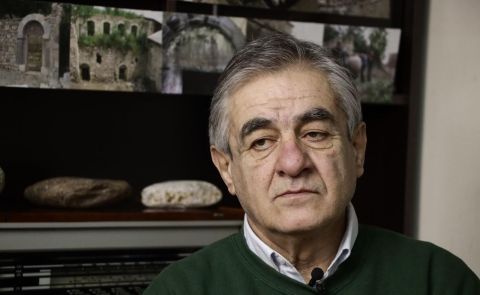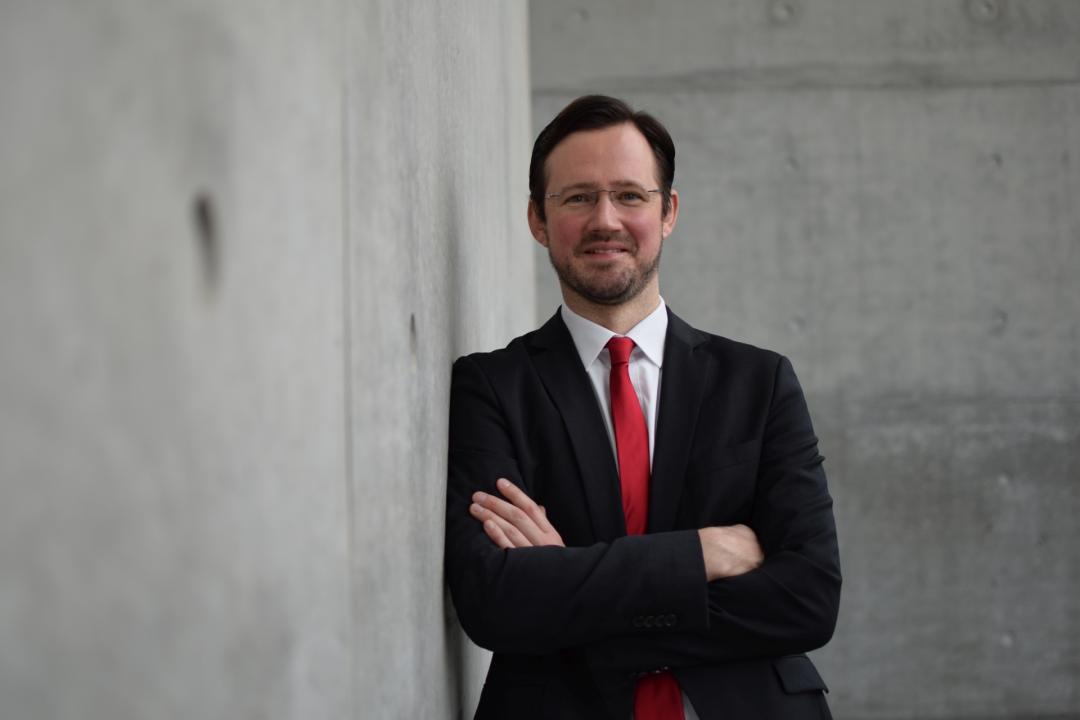
EU-Policy in South Caucasus: Not against Russia

An exclusive interview of "Caucasus Watch" with Dirk Wiese, the Federal Government's coordinator for inter-societal cooperation with Russia, Central Asia and the Eastern Partnership countries.
- Georgia was again promised NATO membership at the last NATO summit in Brussels by US President Trump. However, as with the remarks made by former President George W. Bush, these promises were very vague and have no set timeframe. What is your personal opinion on the matter?
NATO and Germany both stand by their close partnership with Georgia and are working to deepen it further. At the last summit in July, the Alliance once again committed to the Bucharest decisions. Currently, the focus remains on the implementation of the Substantial NATO-Georgia Package (SNGP), which allows for Georgia to move closer to NATO standards and structures, without Georgia’s formal NATO membership being on the agenda.
- Do you think that closer cooperation between Georgia and NATO would also promote integration with the EU?
Georgia’s efforts to move closer to the EU and NATO are two separate processes. Integration into the EU, as well as accession to NATO, is Georgia’s declared strategic goal, which is why the Government is taking these steps to move closer to both institutions. I also talked about this with the new Foreign Minister Zalkaliani when he visited Berlin in July.
The entry into force of the Association Agreement with the EU two years ago was a milestone on Georgia’s path to move closer to the EU. The same can be said of the discontinuation of the visa requirement for journeys to the Schengen area.
- Armenia has been highly dependent on Moscow for its foreign policy making. Do you think that the Velvet Revolution will in general provide new opportunities for moving closer to the EU?
Armenia and the EU have had a Partnership and Cooperation Agreement since 1999, and Armenia has been part of the EU’s Eastern Partnership since 2009. A new agreement with the EU, the Comprehensive and Enhanced Partnership Agreement, was signed on 24 November 2017 in Brussels on the fringes of the Eastern Partnership Summit. This Agreement will deepen cooperation between the EU and Armenia in areas such as the rule of law and fighting corruption, which have been identified as reform priorities by the new Armenian Government. I hope that, once the Agreement has been ratified, it will provide further momentum for cooperation between Armenia and the EU. The Agreement focuses on closer cooperation between Armenia and the EU in a wide range of policy fields, ranging from foreign and security policy, to justice and home affairs and trade issues. In all these areas, the Agreement will help further intensify relations.
- Do you see Armenia’s membership in the Eurasian Economic Union (EAEU) as a barrier to deeper economic ties with the EU? Especially with regard to the possibility of a future Association Agreement?
An association and free trade agreement with Armenia is currently not on the agenda. It is also not being pursued by Armenia because of its membership in the Eurasian Economic Union. However, this does not preclude close economic relations between Armenia and the EU: trade between both sides has developed dynamically in recent years and the EU accounts for about a quarter of the country’s external trade.
- Azerbaijan was able, after achieving independence, to establish functioning relations with all relevant powers outside the region. There is now mounting evidence that Azerbaijan is considering joining the Collective Security Treaty Organisation (CSTO). What consequences would such a decision have for relations between the EU and Baku?
I cannot confirm the premise underlying your question. In my observation, Azerbaijan continues to pursue a foreign policy that aims for good relations with all major partners and is not seeking to join military alliances. And the example of Armenia shows, as I said, that the EU is able to offer tailor-made cooperation to a country that is a member of the CSTO and the Eurasian Economic Union.
- Ankara is arguably Azerbaijan’s main partner. Do you think that the growing split between the West and Turkey will also have a negative impact on European-Azerbaijani relations?
I do not want to speculate about Turkey’s future relationship with the West. However, I believe that Azerbaijan has an interest in functioning relations between Turkey and the EU and will use its opportunities as effectively as possible. Azerbaijan has had a Partnership and Cooperation Agreement with the EU since 1999 and has been part of the Eastern Partnership since 2009. On this basis, relations between the EU and Azerbaijan will continue to be nurtured until the proposed new framework agreement is adopted.
- At the end of August, Federal Chancellor Merkel visited all three states of the South Caucasus. Can you say something about the meaning of the trip?
I believe that the Federal Chancellor’s visit to all three countries of the South Caucasus demonstrates the interest that Germany has in the region. These three countries the Chancellor visited at the end of August have developed very differently in the two and a half decades since their independence - also in their relationship to Europe. However, they all belong to the EU’s Eastern Partnership. It aims to actively shape and expand relations with each country. The same holds true for bilateral relations between Georgia, Armenia and Azerbaijan. We have a great interest in a stable political and economic development of this region, with its difficult territorial conflicts and are particularly keen to promote democracy and the rule of law in these countries. It is important for us to engage in exchange with civil society. The fact that a business delegation accompanied the Federal Chancellor shows that German companies are also interested in a deeper economic exchange with the region.
- Moscow seems in general to see EU efforts to draw the Caucasus closer as a threat to its own influence in the region. Are there any considerations on how to lessen the impact of Russia’s tough zero-sum logic on EU initiatives such as the European Neighbourhood Policy (ENP)?
At a basic level, it is important for me to emphasise that the European Neighbourhood Policy - and with it the Eastern Partnership - is not directed against anyone. It is designed to further the process of stabilisation and economic development in the respective countries. Russia should also have an interest in that.
- In general, what do you consider to be the greatest successes of the Eastern Partnership since the start of the project in 2009? What do you see as the biggest setbacks?
As a result of the Eastern Partnership, EU relations with the six eastern neighbours Armenia, Azerbaijan, Belarus, Georgia, Moldova and Ukraine have intensified significantly since 2009, as have relations between these countries. The Association and Free Trade Agreements with Georgia, Moldova and Ukraine are particularly important. We are currently working together to implement these agreements which will bring these countries closer to the EU through comprehensive political, economic and social reforms. It is also a success that Armenia has managed to conclude the aforementioned Comprehensive and Enhanced Partnership Agreement which strengthens and deepens relations with the EU, while respecting Armenia’s membership in the Eurasian Economic Union. This shows that the EU is responding to the wishes and aspirations of each partner.
But of course we have not achieved what we hoped for in all areas. Despite political commitment to the EU approach, reform implementation is not always smooth. Often it is slow, sometimes there are setbacks. This makes it all the more important that reforms are not hampered by individual interests. Conversely, this also means that the EU must continue to strongly support its partner countries in their reform programmes: politically, financially, but also by providing advice and technical assistance.
- In which areas do you see the greatest potential for success in the future of the Eastern Partnership?
The Eastern Partnership is a success within the partner countries and for the partner countries, if the tangible added value also reaches the local people: in the form of increased prosperity and more democracy. Therefore, the Eastern Partnership will focus on concrete and realistic steps in the coming years. At the last summit of the Eastern Partnership in November 2017, 20 concrete targets for 2020 were agreed. We will continue to work on the implementation of these goals, for example, for more digital collaboration, better connectivity and more youth exchanges. It is particularly important to me that we also expand cooperation with the civil society in the countries of the Eastern Partnership. The Federal Government has again increased the funding for this by 3 million euros this year.
All of this has a positive impact on people’s daily lives - and thus also strengthens the support for the necessary reforms.
Interviewed by Philip Roehrs-Weist
See Also


Irina Mamulashvili: Electoral Interference is a Playbook, not a Recipe

Giorgi Gakharia: The EU Should Engage Georgia Despite Its Democratic Backsliding

Peace or Capitulation? Shahverdyan on Armenia-Azerbaijan Agreement and the Nagorno-Karabakh Crisis

Ali Mousavi Khalkhali: Iran Will Avoid Conflict in the Caucasus

